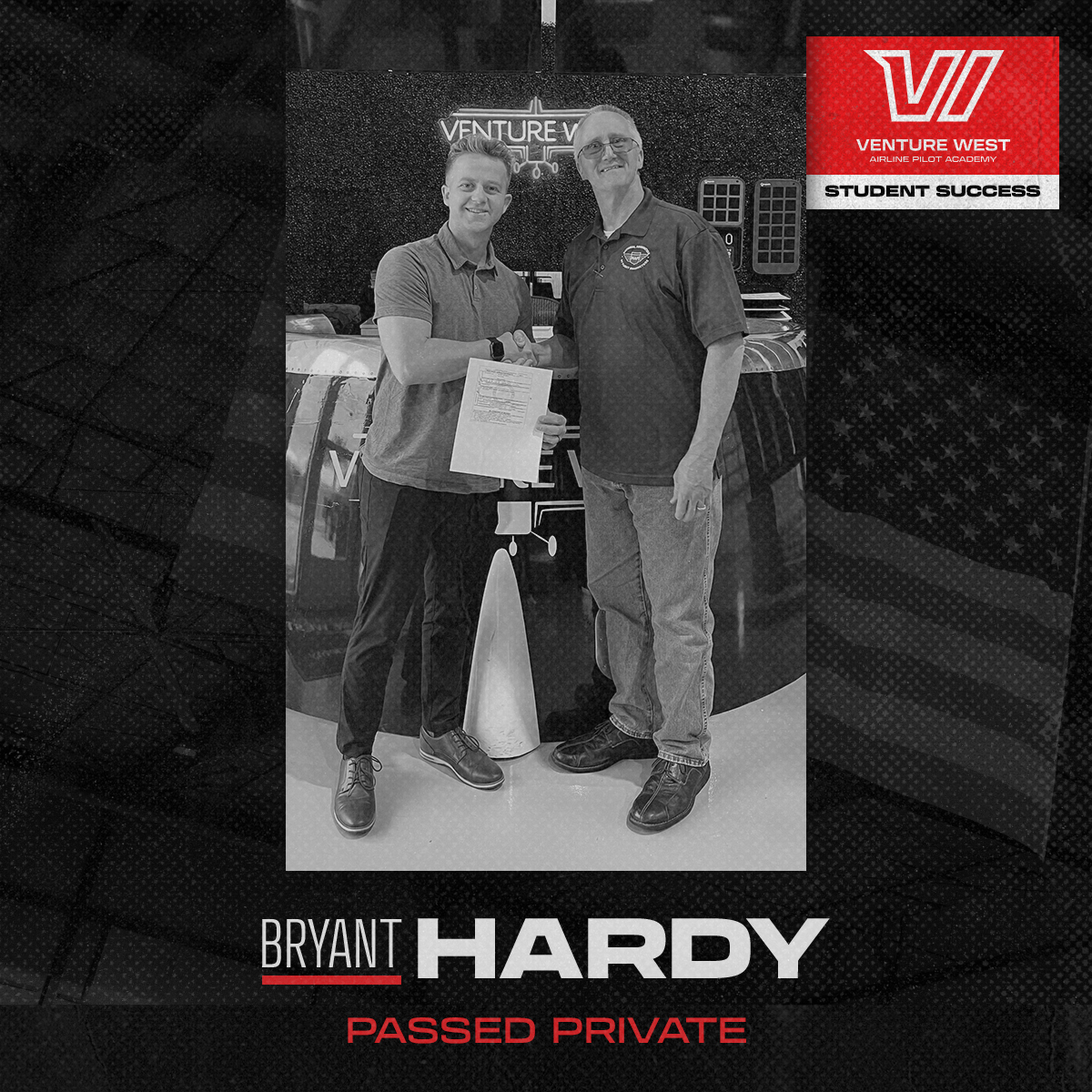

Fastest Track to
Airline Pilot
Achieve your dreams at Venture West Aviation with our accelerated programs. Our expert instructors and comprehensive training will prepare you for a successful airline career in record time.
.png)
Proven Results: Our Top Tier Pilots
Every successful Checkride represents our promise to deliver top-notch education and support.






























Are You...
Why Learn With Us?
5 reasons to take your aviation career to the next level with Venture West Aviation.
Set Schedule
3 Flights Per Weeks
Financing Available
Free Access to Tutors
Guaranteed Checkrides
Set Schedule
3 Flights Per Weeks
Financing Available
Free Access to Tutors
Guaranteed Checkrides
.png)

.png)
Pathway To An Airline Pilot Career PDF!
Featured Courses
Elevate Your Aviation Career with Our Top-Rated Pilot Training Programs
Your Aviation Career Path
Get a detailed guide on what your aviation career can look like. Download now to plan your future!

Join The Community!
Become part of a thriving community of pilots and aviation enthusiasts at Aviator Edge. Share experiences, gain insights, and elevate your skills with the support of like-minded individuals. Let's soar higher together!
.png)


Don't Just Take Our Word For It
Join a network of hard working students who have achieved success through our courses. Collaborate, seek advice, and continue growing alongside peers who understand your journey.
.png)
.png)
Still Have Questions?
Send a Message
.png)
How Can We Help?
We usually respond in a few hours.











.png)
.png)
.png)
.png)
.png)
